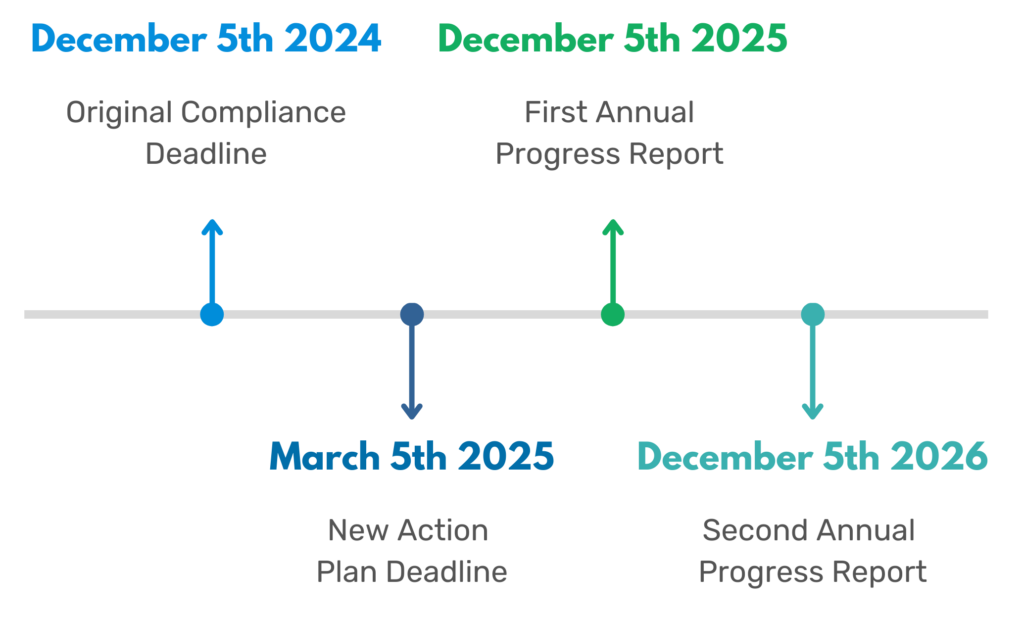The UK’s ambition to hit carbon neutrality by 2050 means incentivising businesses to do their part. Here’s everything you need to know about identifying and actioning energy saving opportunities across major organisations.
The Energy Savings Opportunity Scheme (ESOS) is a UK government initiative that helps private and nonprofit sector organisations monitor energy usage. ESOS is mandatory for all organisations above a certain size, requiring you to assess your energy use every four years. That involves auditing your buildings, industrial processes, and transport for energy efficiency.
Using these audits, you can spot opportunities to save energy, cut carbon emissions, and lower costs across your operations. Properly implemented, and with the right expert guidance and support, your savings from these opportunities should outweigh the auditing costs.
The measures organisations identify to cut energy use and carbon emissions will be made publicly available. We don’t yet know exactly how, but people will be able to check whether you’re living up to your ESOS commitments.
The GOV.UK website has full updated details of the scheme. But what does it mean in practical terms for organisations right now?
The story of ESOS… so far
ESOS was introduced to the UK in 2014 under Article 8 of the EU Energy Efficiency Directive. Despite the UK leaving the EU, it was decided in 2018 that we’d keep opting into the scheme.
ESOS works in four-year phases, allowing time for each set of energy-saving opportunities to be identified, implemented, and measured. The cycle then repeats with the next phase.
Along with its duration, each phase also has a qualification date. That’s the date on which an organisation itself is assessed to see whether it’s large enough to qualify for ESOS.
| Qualification date | Compliance period – deadline | |
| Phase 1 | 31 December 2014 | (Retroactively) 6 December 2011 – 5 December 2015 |
| Phase 2 | 31 December 2018 | 6 December 2015 – 5 December 2019 |
| Phase 3 | 31 December 2022 | 6 December 2019 – 5 June 2024 (extended due to the launch of a new reporting portal) |
| Phase 4 | 31 December 2026 | 6 December 2023 – 5 December 2027 |
In the majority of cases, qualifying organisations must get their assessments checked by an approved ESOS lead assessor. The only exceptions are if:
- Your entire energy supply is covered by ISO 50001
- You consume less than 40,000 kWh in total
What’s different in ESOS Phase 3?
In phases 1 and 2, it was compulsory for qualifying organisations to carry out ESOS assessments. But there was little incentive for them to actually act on the opportunities they identified.
Phase 3 introduced new measures to increase practical carbon savings. If your organisation qualifies, you’re now required to:
- Audit 95% of total energy consumption (vs 90% in phase 2)
- Show how energy consumption was calculated in greater detail. This includes demonstrating how site visits capture an accurate picture of energy use
- Produce a dedicated ESOS report and make it available to everyone in your organisation
- Specify the energy saving opportunities you’ve identified and how you intend to act on them (including cost and benefit details)
- Produce an energy action plan and progress update each year
Your compliance notification, action plan, and progress reports are also now made publicly available. As mentioned, the Environment Agency hasn’t disclosed exactly where these will be accessible yet. Interested parties (like the media) will, however, definitely be able to access this data at some point.
Key dates for ESOS phase three are:

Who needs to comply with ESOS?
ESOS affects so-called ‘large undertakings’ in the UK private and nonprofit sectors, alongside their corporate groups. You’re classed as a large undertaking for each ESOS phase if, on the qualification date, you either:
- Employ 250 people or more (including employees, owners, managers, and partners)
- Have more than £44 million in annual turnover and an annual balance sheet over £38 million
If one member of a corporate group qualifies as a large undertaking, the whole group is subject to ESOS. Public sector organisations aren’t normally subject to ESOS at all.
Phase 4 is likely to expand the number of businesses which qualify for ESOS. This is due to the government moving towards the new Streamlined Energy and Carbon Reporting (SECR) framework.
What benefits does ESOS add to a business?
Most UK businesses are already on their own sustainability journey. ESOS is a vehicle for standardising and celebrating these efforts. The business benefits are potentially significant:
- Better energy efficiency and electricity cost savings. Those savings are estimated to more than cover the cost of auditing
- Regular opportunities to review and update energy strategy. ESOS audits become part of a long-term cycle of improvement
- Improved operational efficiency. An in-depth look at energy usage often spots opportunities to streamline core processes
- Action plan and progress update information will be publicly available; it’s easier than ever to prove your sustainability credentials
- In a worst-case scenario where you’re unable to complete your action plan, there’s no penalty. You’re only penalised for failing to audit at all
What happens if you’re not ESOS compliant?
UK-based large undertakings who don’t submit ESOS audits by the end of each phase are penalised by their relevant regulator:
- The Environment Agency in England
- Natural Resources Wales in Wales
- The Northern Ireland Environment Agency in Northern Ireland
- The Scottish Environment Protection Agency in Scotland
- The Secretary of State for Department for Energy Security and Net Zero if you’re based wholly or mainly offshore
In England, there’s an initial noncompliance fine of £5,000 plus £500 for each full working day your submission is late. This caps at 80 days, for a hypothetical maximum fine of £45,000.
The Environment Agency will also publish details of organisations who don’t comply. That brings in the very real possibility of reputational damage.
Go beyond compliance with Carbon Architecture
We’re helping dozens of major organisations across the UK implement their own sustainability strategies, using ESOS as a framework. With expertise in consulting, assessment, and digital development in house, our clients get everything they need in one place.
Get in touch, let’s start identifying and actioning sustainability opportunities across your business.

